Meta and mega-propagandistic games on Facebook
Every day, on Facebook, hundreds of thousands of people from the Republic of Moldova are assaulted by messages promoted with money. Usually, these messages represent direct calls for protests or actions of blame against the pro-Western government or President Maia Sandu. Some posts are only removed after the American company Meta, which owns the social network, is notified. But the process takes time, so the information manages to reach a lot of people. In most cases, however, the loophole through which agents of destabilization successfully slip is a technical one, namely - problems in moderating content in languages other than English. Thus, Meta deletes messages only after the system identifies fakes. Meanwhile, for the first time, Meta banned a post with MP Marina Tauber, following the Government's intervention. At the same time, the request of Prime Minister Dorin Recean, signed together with 6 of his counterparts, started discussions with three IT corporations - Meta, Tik Tok, and Alphabet (Google and Youtube), in an attempt to stop the avalanche of disinformation, destabilizing and deeply politicized content, disguised as social initiatives.
Three major IT corporations - Meta, Tik Tok, and Alphabet (Google and YouTube) - declare that they are ready to adapt their products so that fakes can be detected and eliminated more easily. This is a reaction to the open letter signed by the head of the Executive from Chișinău, Dorin Recean, along with six other counterparts from Eastern Europe, to the big companies in the IT field, in which they requested the adoption of additional measures to combat disinformation and manipulations on social networks.
"Since the brutal invasion of the Russian Federation against Ukraine, the Republic of Moldova, along with many other countries, has been in the epicenter of an information war. Together with several other government leaders from neighboring states, we have addressed an open letter to major IT companies to seek their support in the fight against disinformation. Foreign manipulation and interference undermine our peace and stability, affecting democracy and our path towards joining the European Union," explained Dorin Recean the necessity of discussions with these companies.
Since March until now, teams representing the three IT companies that responded to the Government's call for solidarity in the fight against Russian propaganda, pro-war, and anti-state content online, have arrived in Chișinău to establish an agenda of actions and, subsequently, more effective mechanisms to combat manipulation. The Government spokesperson, Daniel Vodă, stated that, in response to the Prime Minister's appeal, the global IT giants have expressed their willingness to cooperate. This collaboration entails working with content moderation officials, national fact-checkers, and investigative journalists to put an end to any propaganda attempts in the Republic of Moldova on the internet. In fact, a representative from META also met with members of civil society, media, and the IT community in Chișinău to finalize the collaboration details.
"We have received responses along the way, many cooperation invitations, contacts of those responsible for content moderation, as well as invitations to participate not only in government-corporate formats but also in civil society and anti-fake news network formats. We are talking about the Meta network, which includes Facebook and WhatsApp. A visit was organized by a regional representative who came to Chișinău and acquainted herself with the responsible individuals and met with representatives of civil society. For example, thanks to this important contact, when some politicians spread disinformation, such as Marina Tauber on Facebook, her conference was taken down from the network," stated Vodă for Anticoruptie.md.
The period of uncertainty is still being used as an opportunity to promote messages with propagandistic and destabilizing content. However, the first positive response came from Facebook (META) itself, shortly after this call, as they blocked an advertisement paid for and distributed by Marina Tauber, one of the prominent members of the disbanded Shor Party, who is under criminal investigation for various charges.
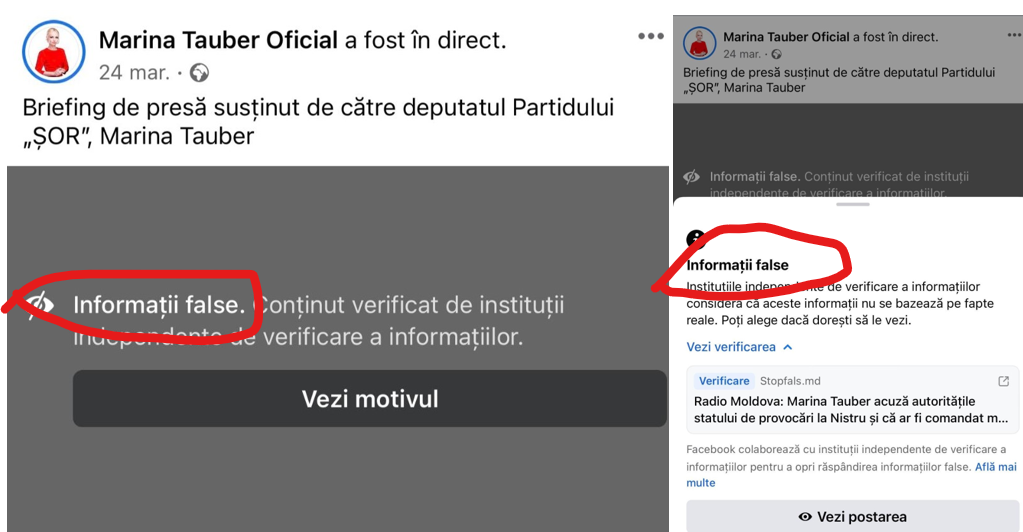
During the press conference, Marina Tauber made alarming claims, stating that the authorities of the Republic of Moldova were planning a "provocation in the Transnistrian region on the day after Easter, and the consequences would be bloody." Moreover, she asserted that the Moldovan leadership had already procured three thousand coffins for the supposed victims of this provocation. Fortunately, this scenario did not come to pass. However, in response to her statements, the Shor Party deputy, now declared unconstitutional, was accused by the Government of colluding with Moscow's agenda and was subsequently summoned to the General Prosecutor's Office to provide explanations.
Tauber further mentioned that "according to data from international special services, there is information suggesting that our authorities - Maia Sandu and Dorin Recean - are preparing a military provocation on the border with Transnistria. Additionally, foreign contingents from Romania have been sent, with the intention of participating in this event. The most concerning aspect is the alleged order for 3 thousand coffins."
 In justifying the blocking of this advertisement, Facebook explained that the post was verified by independent fact-checking institutions that "consider the information not based on real facts." Additionally, Facebook announced that they are in the process of "collaborating with independent information verification institutions to stop the spread of false information." In fact, funeral elements were also used during protests organized by the Party that has been declared unconstitutional, demonstrating a direct connection between these two public events promoted on Facebook.
In justifying the blocking of this advertisement, Facebook explained that the post was verified by independent fact-checking institutions that "consider the information not based on real facts." Additionally, Facebook announced that they are in the process of "collaborating with independent information verification institutions to stop the spread of false information." In fact, funeral elements were also used during protests organized by the Party that has been declared unconstitutional, demonstrating a direct connection between these two public events promoted on Facebook.
The lack of imagination or stability in the use of these elements led Marina Tauber to use coffins again in that "televised scarecrow" about the invasion of the Transnistrian region, information condemned by the authorities, in the conditions of a shaky security situation in the region.
Ilan Shor makes bets on Facebook
The largest client in the Republic of Moldova remains Ilan Shor, the leader of the party bearing his name, which has been dissolved by the Constitutional Court, and who has been sentenced to 15 years in prison for fraud and money laundering. The problem is that the advertisements promoted by the fugitive politician on Facebook, for example, are placed by intermediaries with profiles created overnight. As the number of these posts has grown alarmingly, the Government intends to send a new notification to the major virtual corporations, informing them about the outlawing of the Shor Party, so that its advertising can be restricted without the right to appeal.
The advertisements of the dissolved Shor Party, paid for and distributed by several Facebook pages, call for protests organized by the party, promote anti-government and anti-Western messages. The prices for these ads vary, with the most expensive placements costing around 1500 euros. However, most of them cost Ilan Shor about 100 euros. In exchange for this money, he gains access to a large audience, with the content being accessed by hundreds of thousands of users.
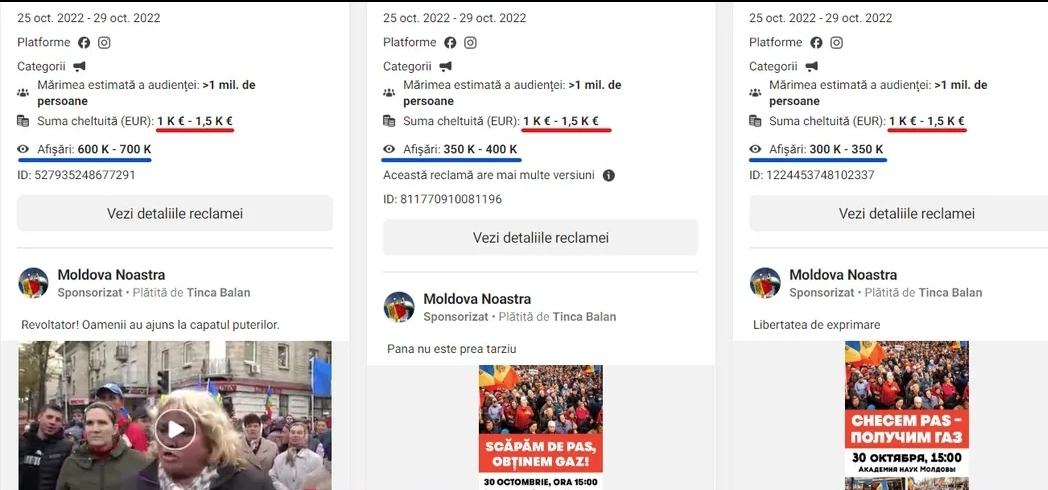
Furthermore, the advertising of the Shor Party is still being promoted on Facebook, even after the party has been declared illegal by the Constitutional Court. A newly created page - Moldova Cosi, with only a few followers, shares the latest messages from Ilan Shor, who is hiding in Israel to evade Moldovan justice. The phone number indicated in the promotion is disconnected and not associated with any name in call identification apps like Viber or WhatsApp, indicating that it was likely acquired solely for the purpose of registering the fake page on Facebook.
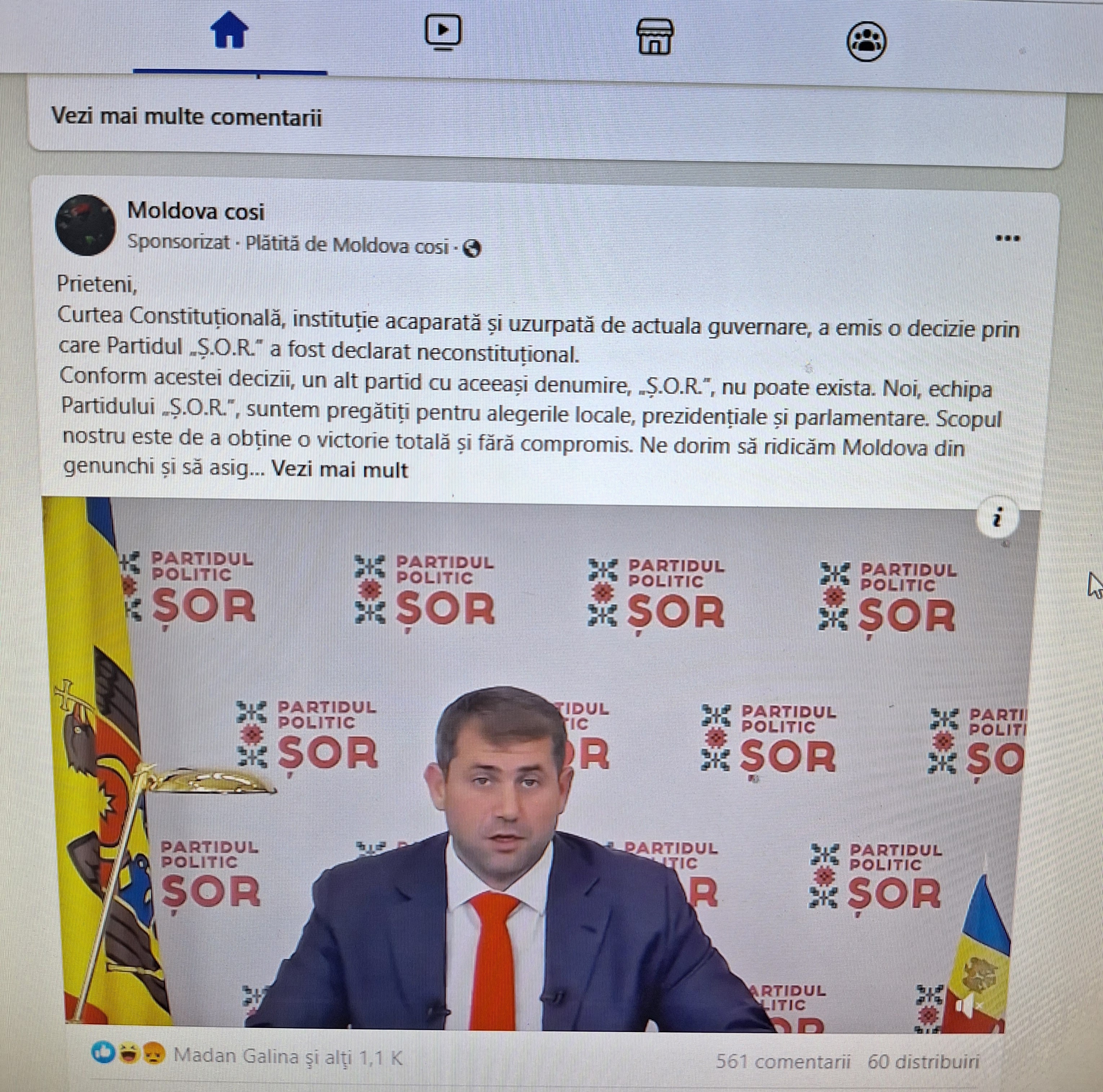
A letter was sent to META to inquire about the reason why the advertising featuring Ilan Shor, sanctioned by the United States, is accepted and running without impediments. The restrictions applied by the US to Ilan Shor and his wife, singer Jasmin, also extend to conducting any transactions or receiving funds. However, at the time of publishing this material, no response has been received from the company.
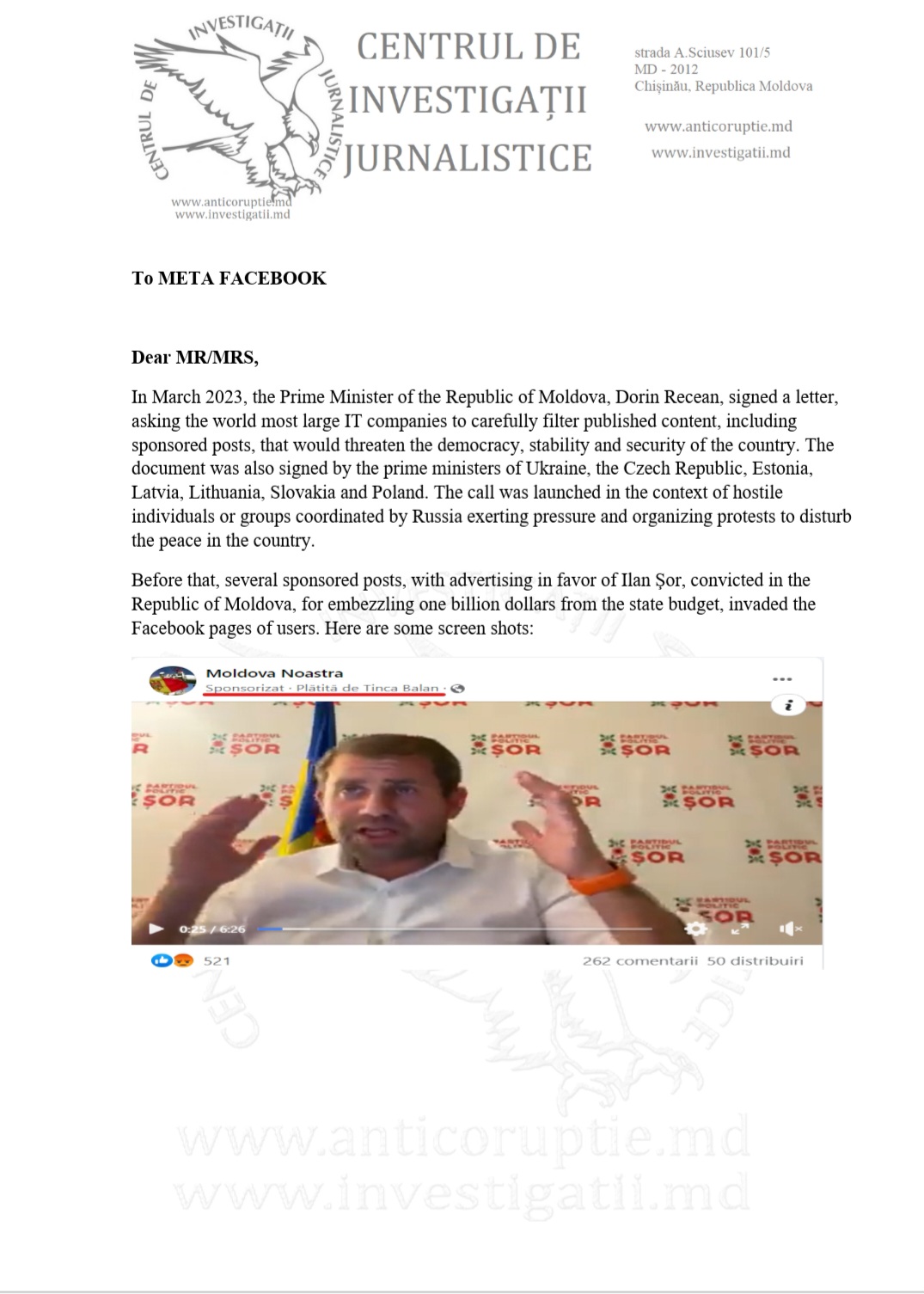
 "FACEBOOK DOES NOT TAKE INTO ACCOUNT THE POLITICAL SITUATION IN THE REPUBLIC OF MOLDOVA OR OTHER COUNTRIES"
"FACEBOOK DOES NOT TAKE INTO ACCOUNT THE POLITICAL SITUATION IN THE REPUBLIC OF MOLDOVA OR OTHER COUNTRIES"
"Users who work for the interests of certain politicians on Facebook know their job very well, how efficient advertising works with large amounts of money, and what vulnerabilities the social media platform has," says an employee from META, who responded to Anticoruptie.md's questions on the condition of anonymity. According to this source, Facebook is a mechanism set to work automatically and filter information. However, there are ways in which rules can be bypassed. Users who work to push advertising on Facebook for dubious entities follow all the technical parameters, except for the content, and pay hundreds of thousands of euros for the advertisement to start running. Until META employees detect the malicious content of the advertisement and block it, it is seen by the majority of the target audience due to the large sum of money invested. In conclusion, the objective has been achieved.
CIJM: We noticed that some ads with collages featuring Putin, for example, were blocked, but Marina Tauber's advertising continues to run undisturbed. Can you explain the reason behind this?
META Employee: The system is very complicated. Facebook has a single requirement for all ads, and they will block your accounts if you try to push them multiple times because they need proper identification. When an ad includes the name, function, or image of a political figure, like Marina Tauber or anyone else, it can only run if it has gone through the identification process with documents like an ID card, etc.
CIJM: What if we try to advertise using personal accounts?
META Employee: It doesn't matter; the crucial aspect is passing the identification process, which is done before launching the ad.
CIJM: Are these algorithms about fairness?
META Employee: Not exactly. They are about automation. Sometimes the automation fails. Those who want to push ads for dubious entities often change their ad accounts frequently, creating hundreds of thousands or even millions of accounts from various countries.
CIJM: We tried to verify the information provided in the ad accounts promoting the Shor Party, the person's identity, and the indicated workplaces, but we didn't receive any response. We want to understand how these fake accounts can promote ads while ours can't.
META Employee: Well, they don't have small budgets. They have budgets of hundreds of thousands of dollars. When they place ads with a large budget, like a hundred thousand dollars, Facebook may not react instantly. The ad may run for a few hours before Facebook blocks it. During that time, they can deliver a smaller sum, like one or two thousand euros, while their original budget was much higher. This means they still reach a significant portion of the target audience. Facebook can react a few hours later, depending on the number of requests they have at that moment, not immediately.
CIJM: So, Facebook's focus might not be on the current affairs of a country?
META Employee: That's likely. It's more related to advertising policies. The team from META, based in Warsaw, handles these matters.
Digital communication expert, Dumitru Talmazan, explained that Facebook operates based on algorithms and does not necessarily take correctness into account. However, there is a different rule for globally known individuals. In such cases, META applies all techniques to protect their image if their likeness is used for various purposes.
For example, an edited image in Photoshop depicting Russian President Vladimir Putin dressed in an orange prisoner's jumpsuit was blurred by Facebook. In META's explanation, it was stated that the photograph was "altered, a fact confirmed by independent fact-checkers." As for internal issues within a country, Facebook does not get involved in any way.
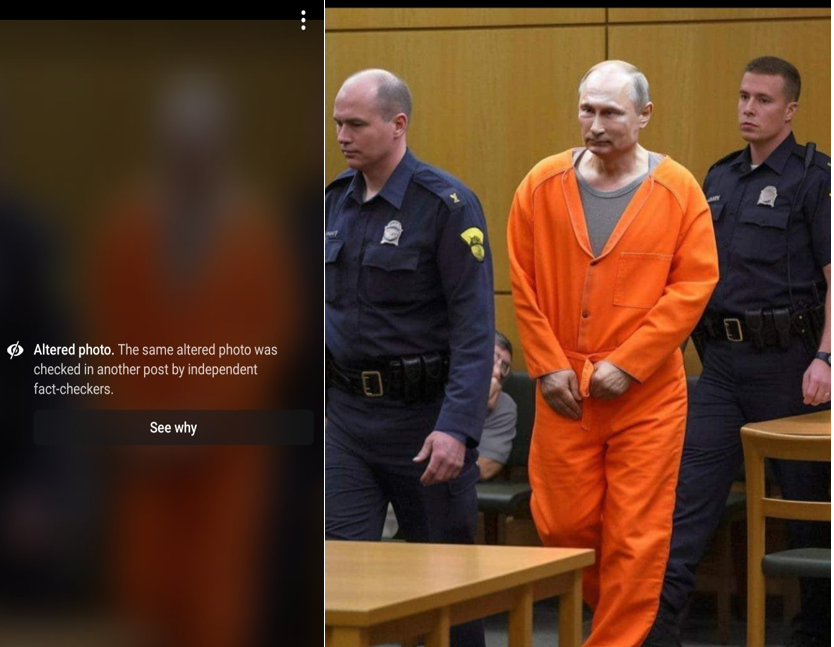
"There is such a practice. It is divided into two forms, there is algorithmic, automatic blocking that obeys certain rules, and it started from the presidential elections in the United States, when social networks were used as a trigger through which it was manipulated at a thorough level. Since then, Facebook has said that all expenses with a social or political nature fall into a form of special promotion category. Posting a post with a public person, any public person, we can say that it can be blocked automatically, for the reason that it is content and the algorithms cannot understand if you are using this post with a positive purpose or to denigrate the personality. The algorithms see that this is Putin. He is in the database. Anyone super public like copyrighted songs. From a technical point of view, their exclusion from the legislation of the Republic of Moldova, as an activity, has nothing to do with the possibility of promotion. If we enter the promotion library, and there is the facebook page, in the given situation of the Shor Party, and this page has, on a technical level, passed the crediting procedure, they have the right to do the promotion procedure. It is important to be transparent. Any political advertisement says who is doing the promotion. When they called them to the senate, they took a third-party stand. They cannot take the side of "x-ulescu steals from our country, why don't you delete him from Facebook?" They don't have that privilege to operate in that area. Here, anyone can become anything with a little trickery and budget. Especially the natural person, unaccredited, the degree of extremely high blocking is increasing", said Talmazan for Anticoruptie.md.
Investigations by CIJM, "forbidden" for promotion
We attempted to test how easy or difficult it is to place an advertisement on Facebook. In the case of the Center for Investigative Journalism (CIJM), an organization that has been exposing corruption schemes and consistently informing about illegalities, for 20 years, it turned out to be a mission... impossible. The promotion of several CIJM investigations, distributed by their authors on Facebook, was rejected, and later, the promotion accounts were blocked without a specific reason being presented. These investigations were about Russian propaganda in the Republic of Moldova, television channels promoting Russia's war in Ukraine, etc.
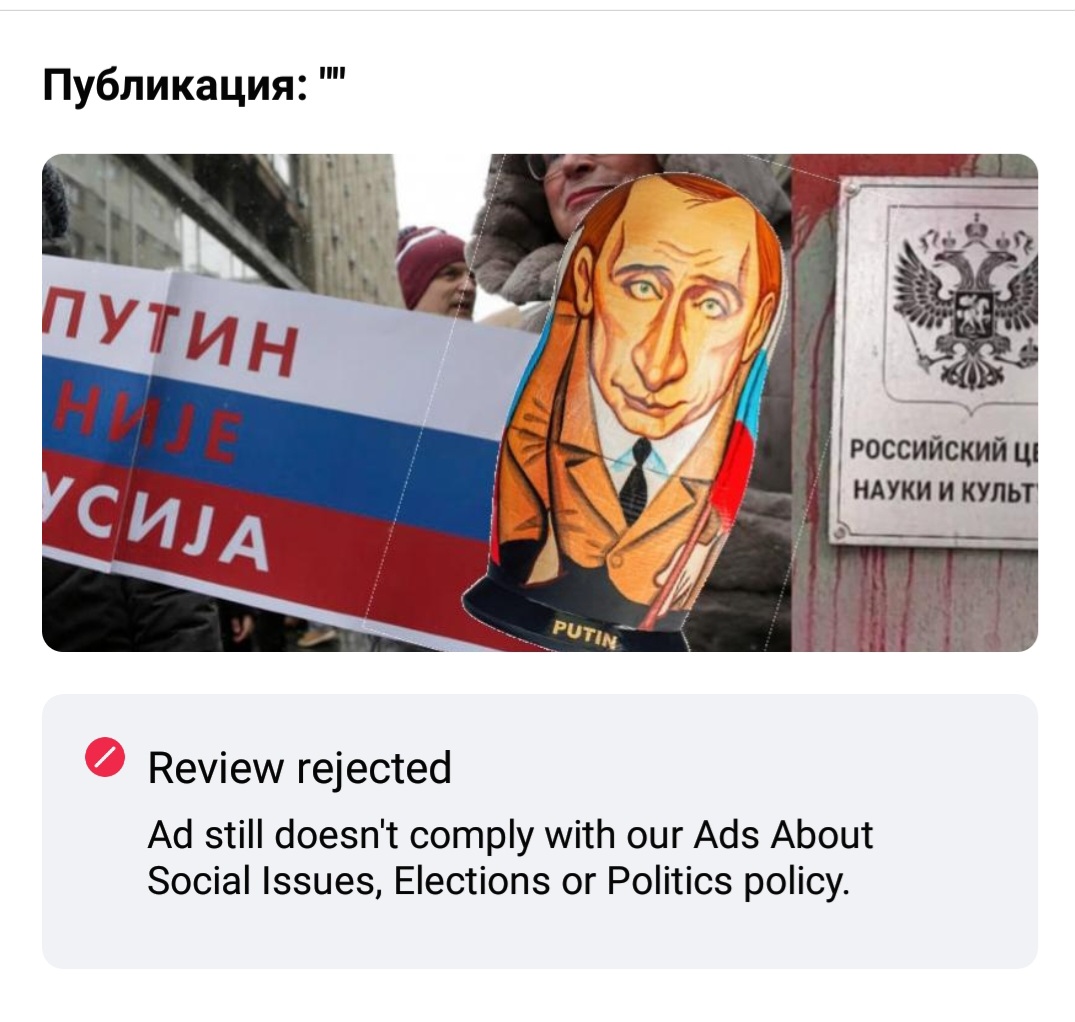
In the investigation "Matryoshkas" of Russian propaganda in the Republic of Moldova: puppets and puppeteers", journalists from CIJM exposed how the "Russian world" simulates cultural dialogue through centers of science and culture opened in Comrat, Tiraspol, Bălți, and the capital, where they engage in organizing illegal referendums, dubious exchange programs, and meetings, where ideological satellites of Moscow promote Kremlin's expansionist rhetoric. Furthermore, schemes were uncovered involving supporters of Vladimir Putin in the Transnistrian region, who are also involved in organizing so-called pro-Russian protests in Serbia and openly express their desire to form a united front for "re-mapping the world."
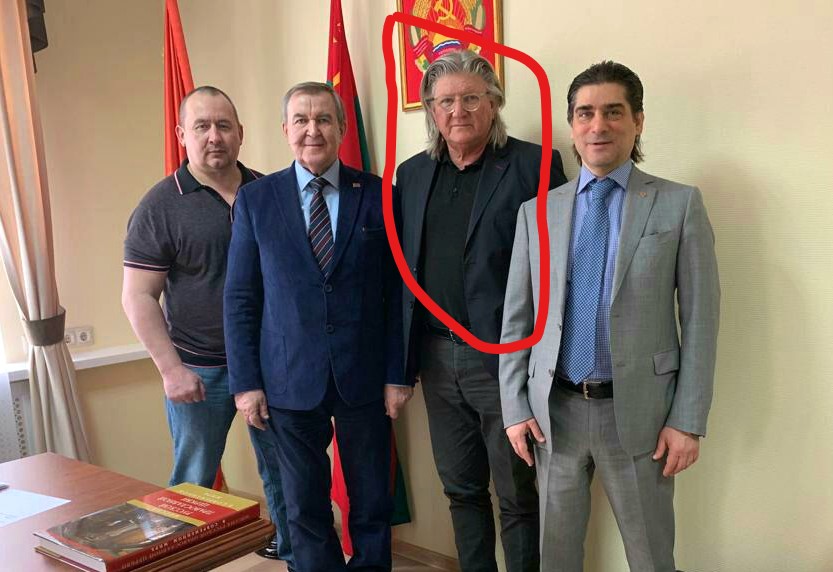
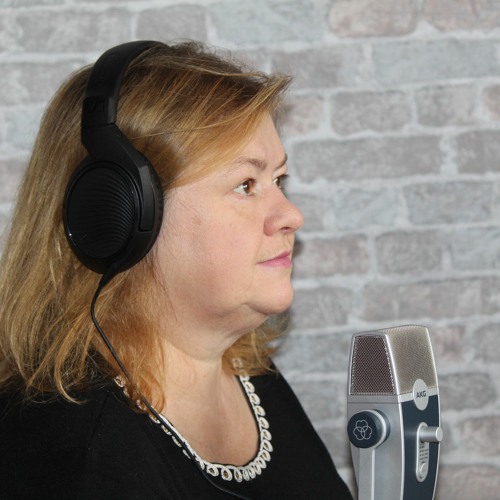 Cornelia Cozonac, the President of the Center for Investigative Journalism, stated that on Facebook, in the battle between distributors of fake news or those featured in investigations and journalists, the first ones or those with more financial resources tend to prevail. In her opinion, on the social media platform, there are individuals paid to report content as malicious, and Facebook's algorithms unfortunately do not favor journalistic materials.
Cornelia Cozonac, the President of the Center for Investigative Journalism, stated that on Facebook, in the battle between distributors of fake news or those featured in investigations and journalists, the first ones or those with more financial resources tend to prevail. In her opinion, on the social media platform, there are individuals paid to report content as malicious, and Facebook's algorithms unfortunately do not favor journalistic materials.
"We are usually blocked on Facebook when we distribute materials about corruption, or about certain individuals like Ilan Shor, who is under criminal investigation and has been convicted of stealing billions and other corruption-related violations. The same happens when we share materials about the war in Ukraine. It seems that there are probably paid or well-paid individuals, and there are many of them, reporting specific posts, reporting posts and materials from certain media institutions or other sources of information, and that's what generates the blockade Facebook imposes," Cozonac emphasized.
Furthermore, the President of CIJM, present at the meeting with the META representative, asked why the advertising for the Center's investigations is being blocked. The response received was that there shouldn't be any issues. Cornelia Cozonac clarified that approximately 75% of the traffic to the Anticorupție.md or Investigatii.md portals, where current journalistic investigations are published, comes from Facebook, making the platform crucial for promotion. However, the algorithms seem to work against independent media, she added.
"I posed this question during a conference, where a representative from META, the company that manages Facebook, was present. She probably didn't understand my question because she said there shouldn't be any blocks. I asked what we should do so that funds from corrupt individuals are not taken into account when it comes to journalistic materials. We have distributed journalistic investigations on Facebook and tried to promote them with payment, but we were blocked. We were told to change the content. This drastically reduced visibility on the Anticorupție.md website. That's the situation. About 75% of our visibility comes from Facebook. We are trying to find other sources of traffic to our website, but for now, Facebook remains an important network for us. We don't know if META has specific policies for Moldova or if this is their general approach. But based on their current actions, it seems that the algorithm somewhat favors the corrupt and not independent media," concluded the President of the Center for Investigative Journalism.
Content regulation on the verge of becoming law
On July 5, 2023, the President of the Republic of Moldova, Maia Sandu, announced that the draft law on the establishment of the Center for Strategic Communication and Combating Disinformation, including in the online space, has been submitted to the Moldovan Parliament. According to Maia Sandu, the National Center for Information Defense and Combating Propaganda, symbolically named PATRIOT, will have the role of coordinating and implementing the state's policy in the field of informational security. The Center aims to "protect our citizens from constant manipulation and propagandistic attacks."
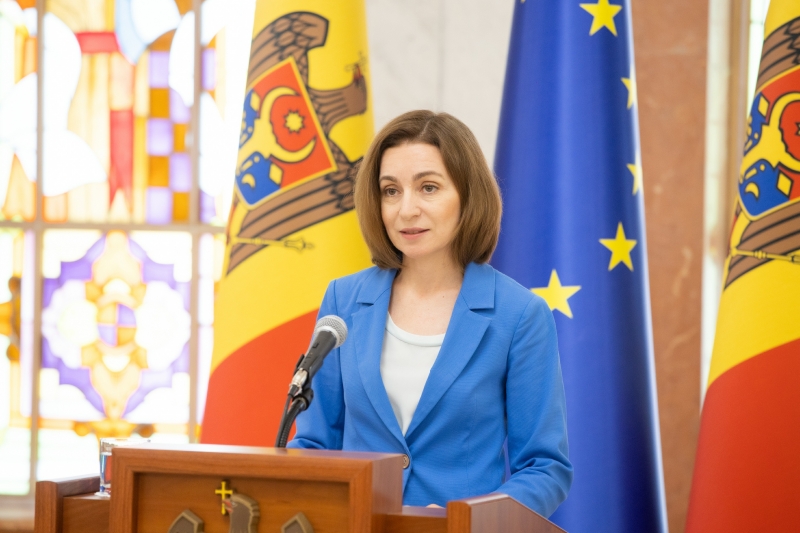
President Maia Sandu referred to the informational attack that has been carried out by troll factories and multiple media channels since the beginning of the war in Ukraine, with the intention of weakening the Republic of Moldova. Hence, the initiative to create the Patriot center was born in order to reduce the aggressive impact of propaganda.
The institution will have two main responsibilities:
To provide verified information to the general public and ensure constant dialogue with citizens, as well as collaborate with all state institutions to promote national interests and increase our society's resilience against disinformation.
To identify, assess, and combat disinformation to eliminate risks posed by hybrid threats and misinformation on national security.
"The PATRIOT Center will have the mission of coordinating and implementing the state's policy in the field of informational security and ensuring strategic communication to identify, prevent, and combat disinformation at the national level. (...) Moldova needs an institution that ensures the fight against propaganda, objective information for the people, the development of citizens' informational resilience, and the defense of informational security. I know that this announcement will stir up the hornet's nest of those working against the Republic of Moldova, and the lies will intensify. Some will discuss this initiative from the perspective of freedom of expression. The right to freedom of expression is an undeniable value and the basis of the democratic development we all desire, but freedom of expression cannot be a shield for lies and intoxication," stated Maia Sandu.
Ten days later, the project was voted on in the first reading by the elected representatives.
The Center will be led by a director appointed by Parliament, upon the proposal of the President of the Republic of Moldova, for a term of 5 years, with the possibility of reappointment for another term. The selection of the Center's director will be based on a public competition announced and organized by the President of the Republic of Moldova, in accordance with the approved regulations.
The director will be assisted in carrying out his duties by a deputy, appointed by the President of the Republic of Moldova, upon the proposal of the Center's director.
The Center's Board will consist of 11 members, including the director, deputy director, senior officials from the Center, a representative appointed by the President of the Republic of Moldova, a representative appointed by Parliament, a representative appointed by the Government, and 3 representatives of civil society selected by the Center. The composition of the Board will be approved by the President of the Republic of Moldova, upon the proposal of the Center's director.
Investigations in the same category:
The stories from www.anticoruptie.md may be used in the limit of up to 1,000 characters. Web pages must indicate the source and link directly to the article. Print media, Radio and TV stations must indicate the source. Publishing full version of stories is allowed based on a prior agreement with the Center for Investigative Journalism. Articles published on www.anticoruptie.md are protected by the Law on copyright and related rights of Republic of Moldova.
Comments
